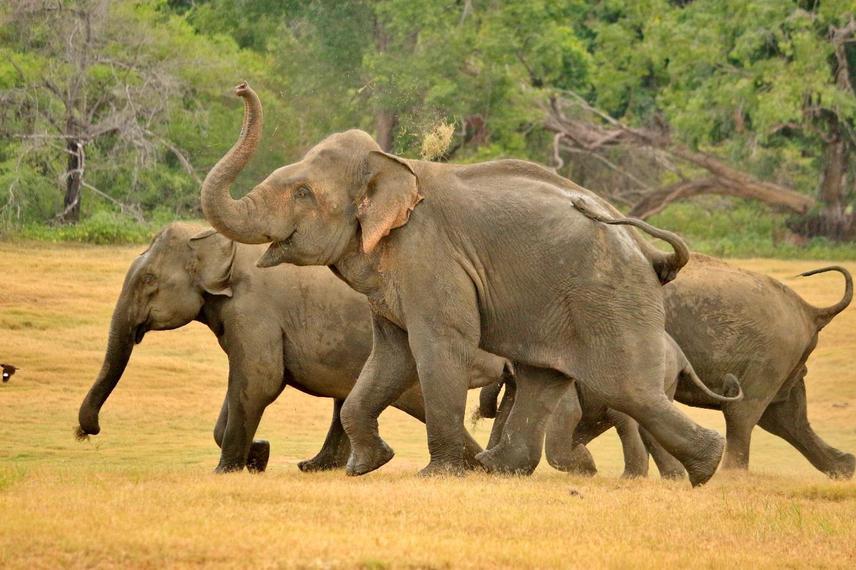Kylie Michelle Butler
We aim to investigate the effectiveness of beehive fencing to deter Asian elephants from crop raiding on small scale farms, and the potential influences of sociality on crop-raiding behaviour.

Elephants fleeing from the clearing towards forest at Weheragala Tank © Kylie M. Butler.
Human-elephant conflict is a major conservation challenge, with crop raiding a prominent issue posing significant threats to humans and elephants. Many methods have been trialled to deter elephants from crops with varying success. One unique method demonstrating success in Kenya is the use of beehive fencing around crops, designed by Dr. Lucy King. Trials in Kenya show that farms projected by beehive fencing experience less crop raids than neighbouring farms without beehive fencing. Thus, beehive fencing may have an important role in reducing farmer-elephant conflict and enhancing rural livelihoods through increased crop productivity and honey harvesting. Furthermore, studies show that the sound of disturbed honey bees alone causes African elephants to retreat and produce warning vocalisations leading other elephants to retreat. This indicates that elephants may remember negative consequences of bee interactions and transfer this knowledge to other elephants.
Beehive fence trials are being conducted throughout Africa, however until now this method has not been formally trialled in Asia. This project will be the first to scientifically investigate how Asian elephants respond to beehive fencing and to assess this technique’s potential as an important Asian elephant crop raiding deterrent tool. We will establish a beehive fence study site in a Dewagiriya Village, Sri Lanka - a small farming village adjacent to Wasgamuwa National Park which experiences high levels of crop raiding. We will work closely with the local community to build the fences, introduce beekeeping skills, and monitor the success of the fences as an elephant crop raiding deterrent. We envision that farmers involved in the project will benefit from reduced crop-raiding incidents and thus improved harvests. Further benefits from beekeeping will include increased crop pollination, and income generation from honey and wax product sales.
The future of elephants is of national importance to Sri Lanka, as elephants are a cultural and religious icon, an umbrella species and a financial asset through tourism. Conducting a formal and structured beehive fence trial is invaluable to future human-elephant conflict management plans, and will provide information imperative to the future assessment and development of locally appropriate beehive fence establishment in Sri Lanka, and other Asian elephant range countries.